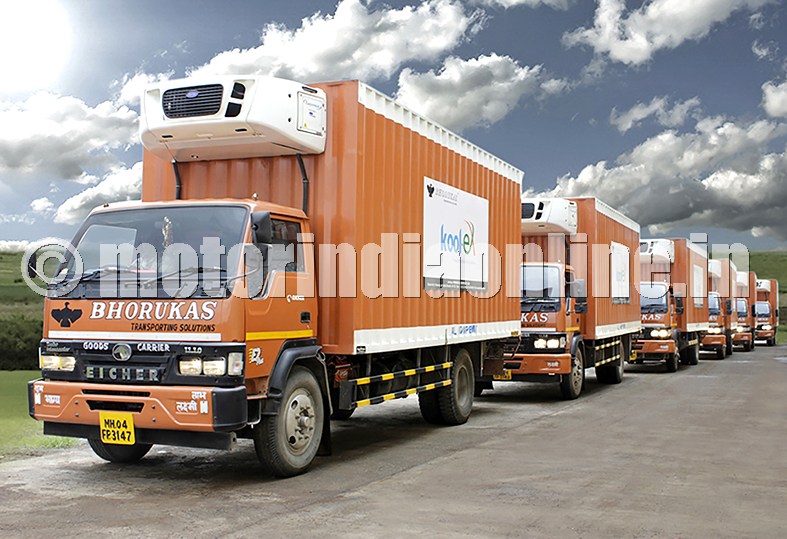Bhoruka Logistics Pvt. Ltd. was started in April 1997, followed by the establishment of Kool-ex Cold Chain Ltd. four years back in April 2013. With a fleet of 140 reefer vans as part of Kool-ex and around 60 container trucks of Bhoruka Logistics, the firm primarily operates in the pharmaceutical and healthcare segment pan-India. Of the group’s total fleet of 200 trucks, around 160 are from Eicher, 25 are Tata Motors and the rest 15 split between Ashok Leyland and Mahindra.

Mr. Rahul Agarwal, Director, Kool-ex, talks about his firm’s growth in the cold chain logistics space, post-GST considerations, etc.
Excerpts:
FY17 performance
The cold chain business in Kool-ex Cold Chain has seen 60% growth, while in Bhoruka, growth has remained flat owing to the company focusing more on high margin businesses. We have surpassed our expectations in the cold chain business.
Plans and outlook for FY18
Business is very good and we expect growth to accelerate post implementation of GST.
GST impact on logistics sector
There may be a short-time slowdown from June to August owing to implementation concerns however the same should cover up and accelerate post September 2017.
Company’s GST-readiness
We are rolling out more services especially in last mile deliveries and warehousing post GST.
Technology adoption
We have been using telematics successfully since 2008. Preventive maintenance has been a practice for the last three years. Our connectivity is excellent due to a well spread branch network across India. Mobile apps that give full visibility of the transit cargo to the customer are the future and will be an important trend this year.
Tackling driver shortage
At our end, we are spending adequate time and money in driver welfare and driver training. The way forward is to ensure continuous training programs and welfare schemes to attract talent.
Factors that would drive logistics sector growth
Improving infrastructure, GST rollout which would reduce barriers, better fleet turnaround and reduced distribution costs enabled by barrier-free trade.
